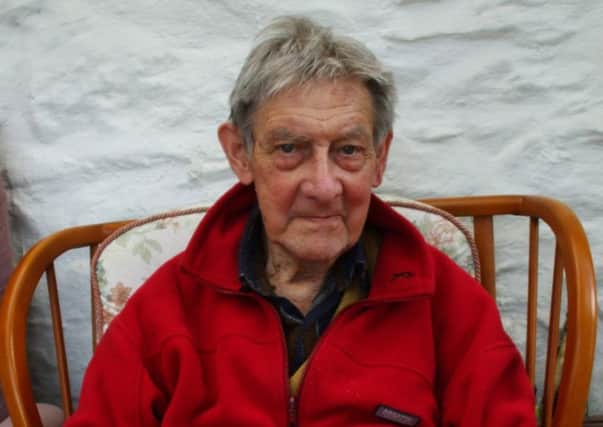Obituary: John Barclay Pick, writer


John Pick was a sensitive and insightful writer who did much to extend our knowledge of Scottish literature and Scottish writers. He will be sorely missed by those who knew him personally or through his work.
A tireless advocate of writing that was full of insight, John was the biographer of Neil Gunn and a great champion of the work of David Lindsay.
Advertisement
Hide AdAdvertisement
Hide AdHe was one of the founders of the Canongate Classics series which brought many of our neglected writers back into print, and such was John’s encyclopaedic knowledge of 19th and 20th century literature that he introduced many writers and their works to his fellow editors. Nan Shepherd was just one such writer.
John first met Neil Gunn in the late 1940s. He had written an article on Gunn’s novel The Green Isle of the Great Deep, a book written against the terrible backdrop of the Second World War which attacked the horrors of totalitarianism while also suggesting a way forward, and was based on the freedom that can come from living in a sustaining community.
Gunn contacted John as a result of his article and they became and remained friends until the Highland author’s death in 1973.
In 1981 he published Neil M Gunn: A Highland Life which he co-wrote with the American academic Francis Russell Hart. It is a highly readable biography written by two men who knew their subject and who cared deeply about his writing and his vision. It gives a very balanced picture of one of Scotland’s greatest novelists.
Not only did the book highlight Gunn’s strengths, but it also dealt sensitively with his weaknesses.
A critic of sharp intelligence, John opened up for the reader aspects of writing and writers that many others missed.
In The Great Shadow House, for instance, he offers an introduction to the metaphysical tradition in Scottish literature that extends from the ballads through Hogg and Stevenson to Lindsay and Gunn by way of Carmina Gadelica, that wonderful collection of Gaelic hymns, prayers, and incantations.
There may be figures missing from the picture, but John has certainly put down a map of the territory for others to explore further. It was in recognition of such work that John was recently made an Honorary Fellow of the Association of Scottish Literary Studies.
Advertisement
Hide AdAdvertisement
Hide AdFor many years John was a regular reviewer for The Scotsman, a task to which he applied his customary professionalism and insight. Many of those reviews carried highly perceptive comments on the nature of writing itself as well as getting at the essence of the book under discussion.
John was always unfailingly helpful to younger writers and to students; his advice always clear and perceptive.
He valued writing that caught the writer’s thought and conveyed it with precision and economy, as he outlined in a short poem entitled, Mr Apeck’s Literary Lecture:
“Look sharp, see deep and don’t relax;
Use short words, say only what you know, And when you’ve said it, go.”
So Apeck said, and went.
Such was his generosity of spirit that he inspired many of those who attended his discussion group in New Galloway to go on to study literature at university or to become writers themselves.
He treated younger writers, too, with patience and respect because he knew from personal experience how hard it is to say anything worth saying in such a way that it resonates in the lives of others and enriches them.
Every Christmas John sent his friends a small book of poems and aphorisms garnered from the year just past. These were always received with delight because they were filled with his sense of wonder and astonishment at being alive, the feeling of being awake in the world. They are a celebration of the wonder of it all. Here is The Wood:
“This is the hidden wood
Where all the lost birds sing.”
His life, his work, stands as an invitation to wake up and listen to our world.